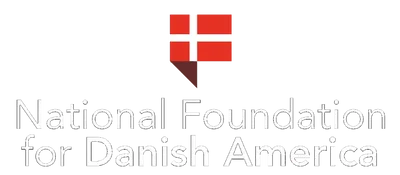
Joyce Andersen & Harvey Reid
Danish American Joyce Andersen & Harvey Reid live stream from The Puffin & Loon Lounge at the Woodpecker Wild Life Center in York, Maine. Joyce had Danish grandparents, lived in Denmark as a child for a few months and attended the folk high school in Hørsholm where she also played on the street. Thanks for joining us! It helps us if you SUBSCRIBE to our channel to join in the live chat and to hear about upcoming streams
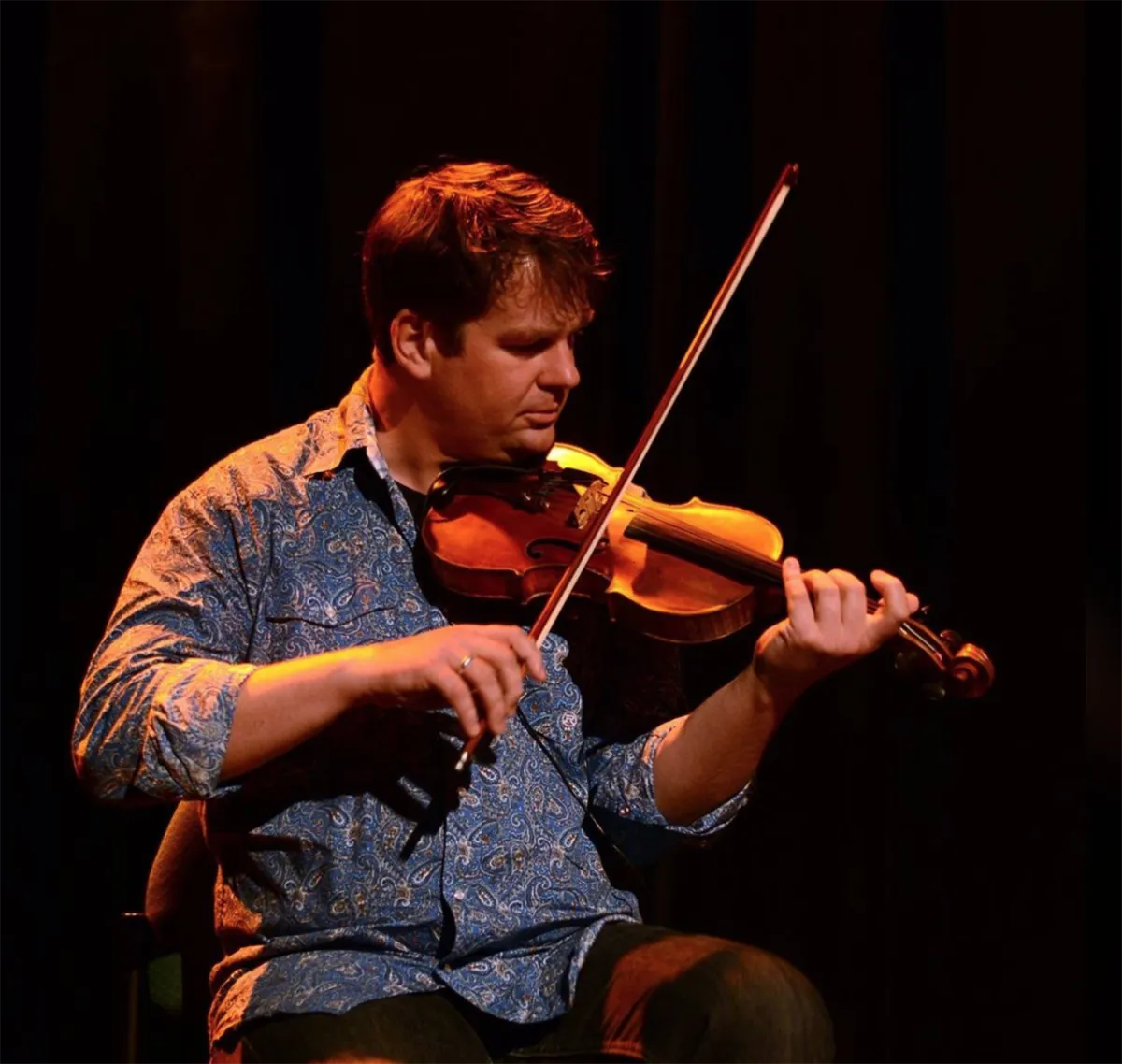
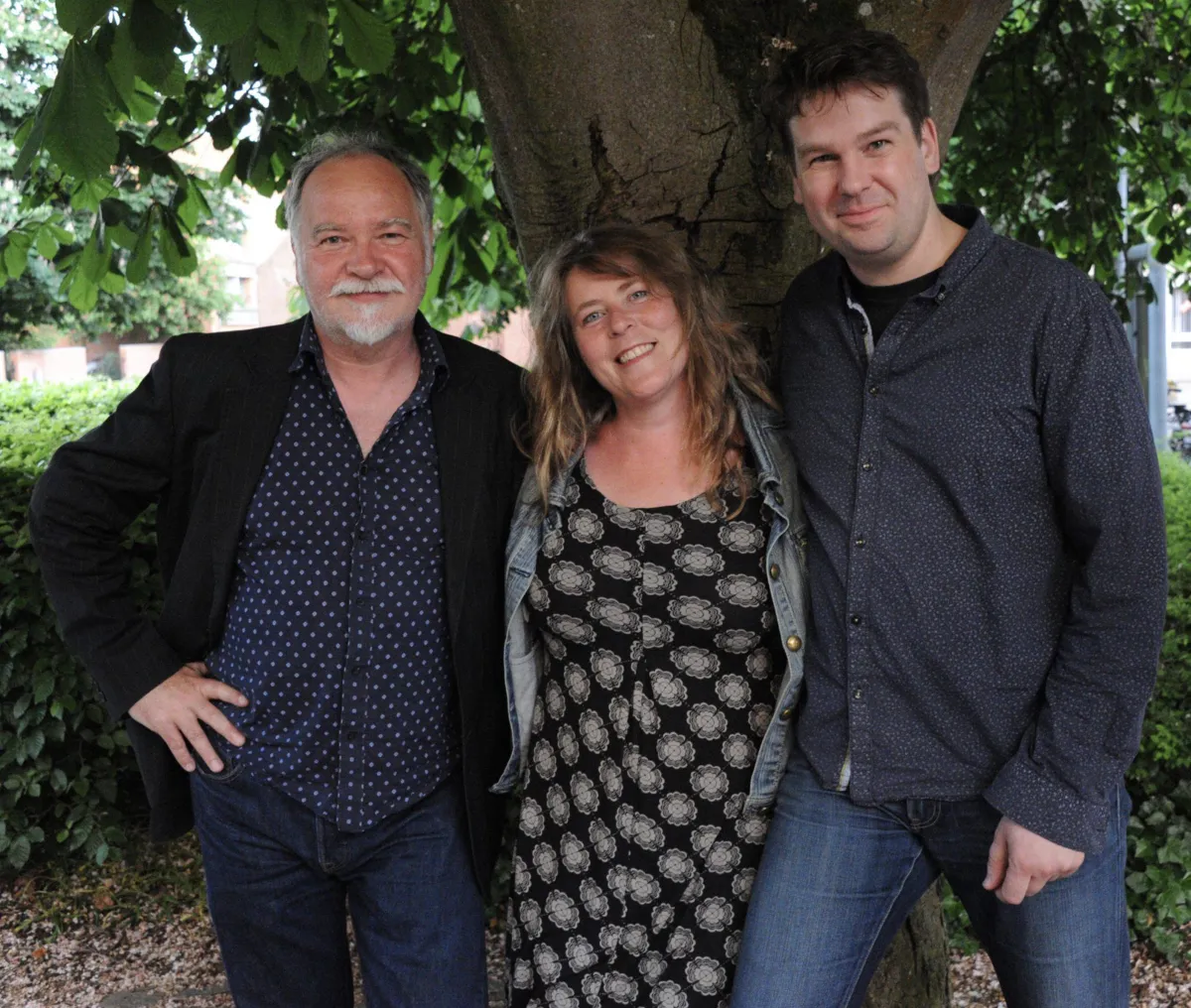
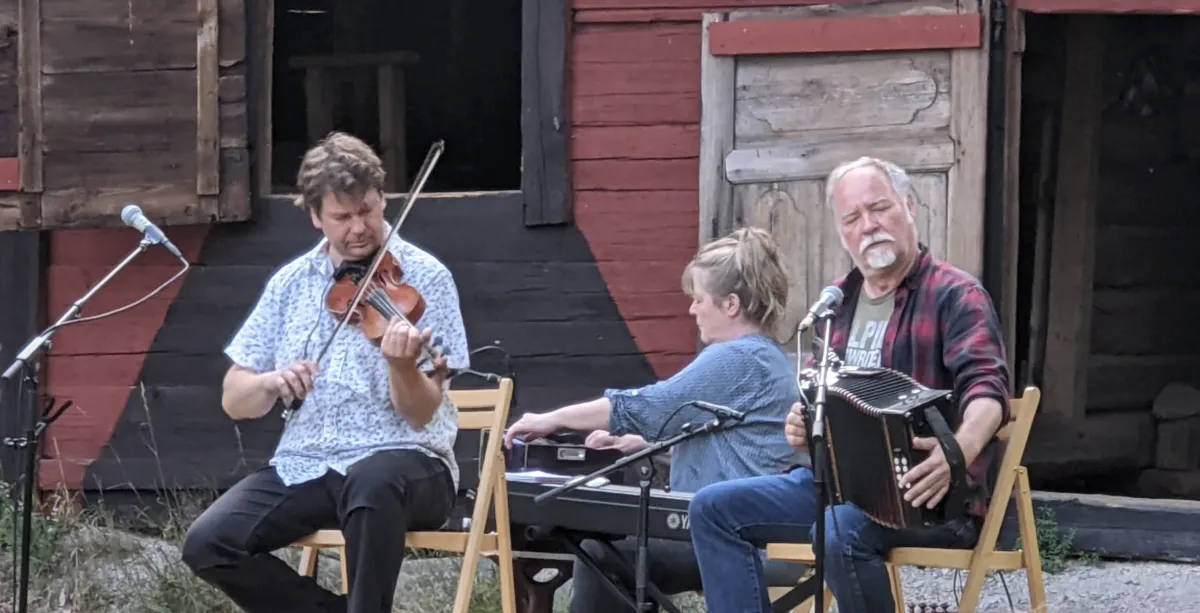
Kristian Bugge & Gangspil
Kristian Bugge is one of the busiest folk musicians rooted in Danish music. He was born 1979 in Næstved, Denmark. His family lived in Sweden for two years and then settled in Vejle in Eastern Jutland, Denmark. He attended a Rudolf Steiner School where, when asked in the fifth grade which instrument he would like, he chose the violin. Soon the two of them were inseparable. His mother, Lise, found a local music school offering ensemble playing for young people and that was where Kristian first met traditional music. He was fascinated by the catchy tunes, the close connection between music and dancing, and the spontaneous joy of playing among other young musicians – an experience which was to decide the direction of his musical career. He experienced music as a means of communication unhindered by national or cultural borders while travelling with the youth ensemble Fandango.
Now Kristian Bugge is very active on especially the Danish, Scandinavian and North American folk music scene, both as a musician and teacher. Kristian has specialized in the strong Danish folk music traditions, playing with groups like Jensen & Bugge (with Mette Jensen), Kings of Polka and Gangspil. For about 10 years he played duo with the legendary accordionist, late Karl Skaarup. Kristian has a strong love to the traditional music but also really enjoy experimenting being part of crossover projects as the cooperation with classical percussionist Ronni Kot Wenzel in the very active duo Wenzell & Bugge and the exciting Danish folk big band Habadekuk.
SONNICH LYDOM & KRISTIAN BUGGE
"Two of Denmark’s leading folk musicians take you along on a tour around the music traditions of their home country!”
For many years Sonnich Lydom (accordion, harmonica, vocals) and Kristian Bugge (fiddle, vocals) kept meeting in many corners of the blooming Danish folk scene, often when there was a jam session going on. We always had a lot of fun together and finally decided to bring some of that on to the stage. Now we've have been playing and touring together for about five years. It's been increasing excitingly with more and more activities in both Europe and North America.
Music samples:
Gangspil goes to the movie:
Gangspil live in the studio
Gangspil have toured intensively and played more than 100 shows in North America since 2015! - as well as a good number in other parts of the world. The group has become a well-known name in trad- and folk circles both home in Scandinavia and abroad. In 2016 Gangspil received the "Tradition Award" at the Danish Music Awards (Danish Grammy). We are delighted and proud of that, it has been great to play for all of you!
Sonnich & Kristian will guarantee you an entertaining and variated journey through the traditions of Danish folk music. This lively group performs old rare dance tunes and songs from every corner of their Scandinavian home country. From rural islands like Læsø and Fanø to metropols like Copenhagen, including a few of their own compositions. Expect everything from wild polkas and jigs to lyrical waltzes, fiery reels and happy hopsas, plus the exotic “Sønderhoning” dance tunes from the famous Island of Fanø. “- an unforgettable live experience spiced up with humor and stories from their many years on the road..”
GANGSPIL
Telephone -(360) 701-4931
Email - kristian@kristianbugge.com
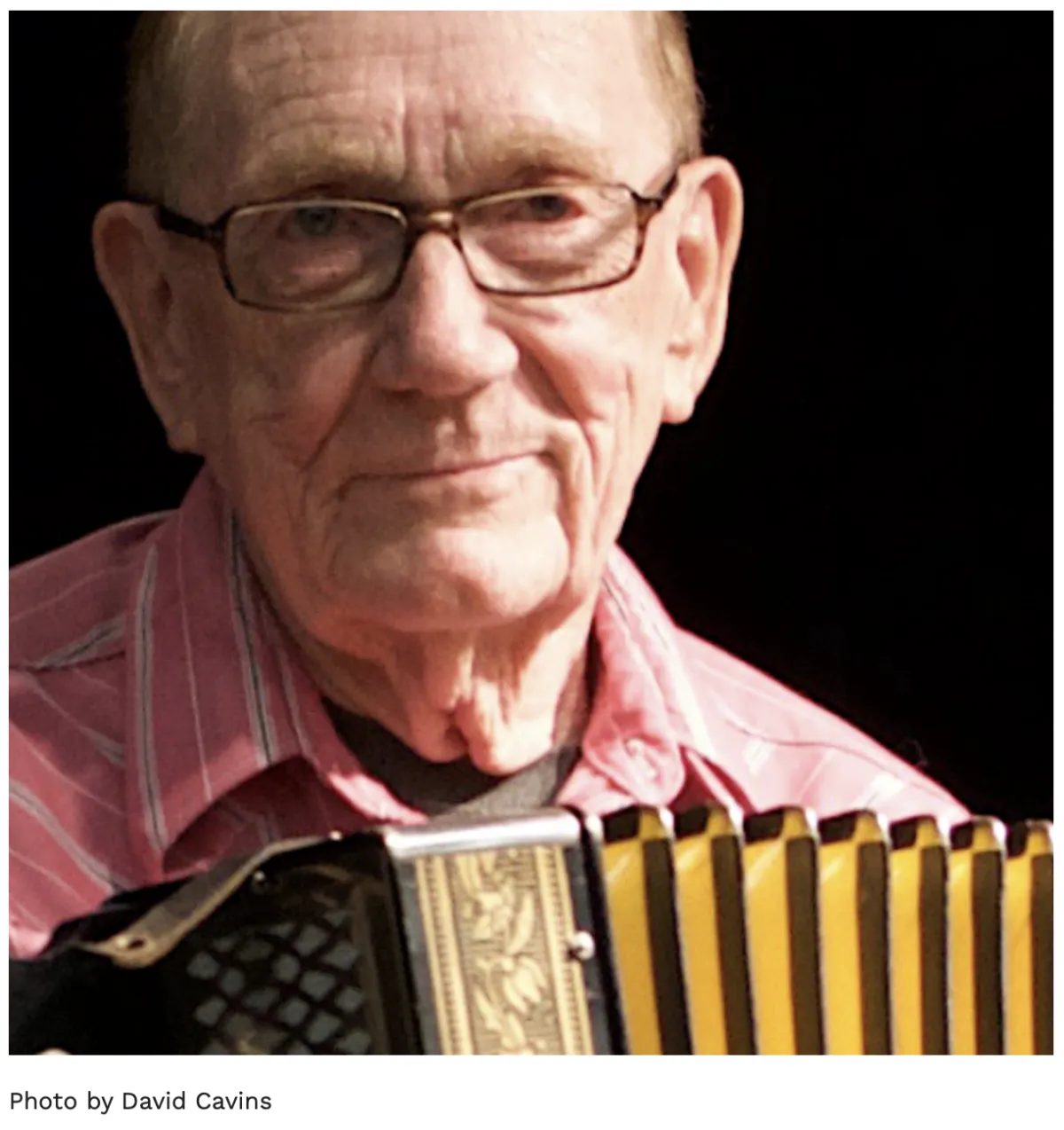
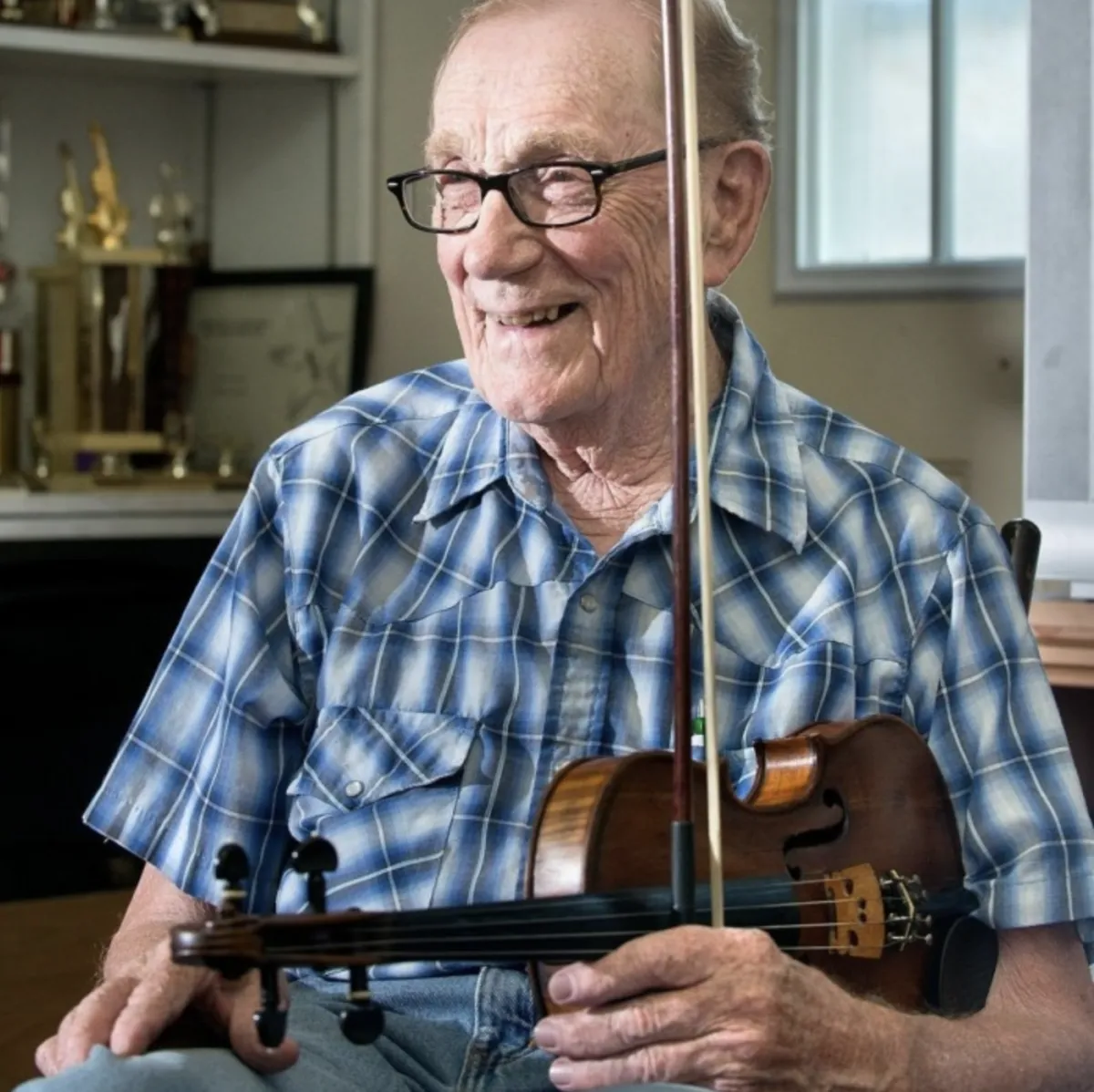
Dwight Lamb
Fourth-generation old-time fiddler and button accordion player Dwight “Red” Lamb is a master of Danish fiddle and accordion traditions, as well as Missouri Valley old-time fiddling. With more than 60 years’ commitment to collection, recording, preservation, and teaching, Lamb has mentored generations of regional and international musicians and is the 2017 recipient of the Bess Lomax Hawes National Heritage Fellowship.
Lamb, known for his unusual left-handed fiddle style, was born in Moorhead, Iowa, in 1934. Alongside his Danish grandfather, Chris Jerup, Lamb played his first dance on the single row ten-button accordion. Jerup, also a fiddler and button accordion player, learned from his own father in Vendsyssel, Denmark. In 1961, Lamb—also a protégé of Missouri Valley fiddler Uncle Bob Walters, a radio fiddler from Tekamah, Nebraska—entered his first fiddle contest. Lamb has gone on to win numerous awards from fiddle and accordion contests, and, as a nationally certified judge, he has adjudicated contests in nine states.
Lamb is not simply a musician and teacher. Without his efforts, the majority of available recordings of Missouri Valley musicians such as Bob Walters, Casey Jones, Cyril Stinnet, and Lena Hughes, as well as their unique styles, repertoires, and stories, might have been lost. His broad repertoire reflects the confluence of his heritage and his region, as the Missouri Valley fiddle tradition reflects a unique melding of Anglo-Irish traditions with the Scandinavian, Eastern European, German, and Canadian influences of the upper Midwest. - from National Endowment for the Arts
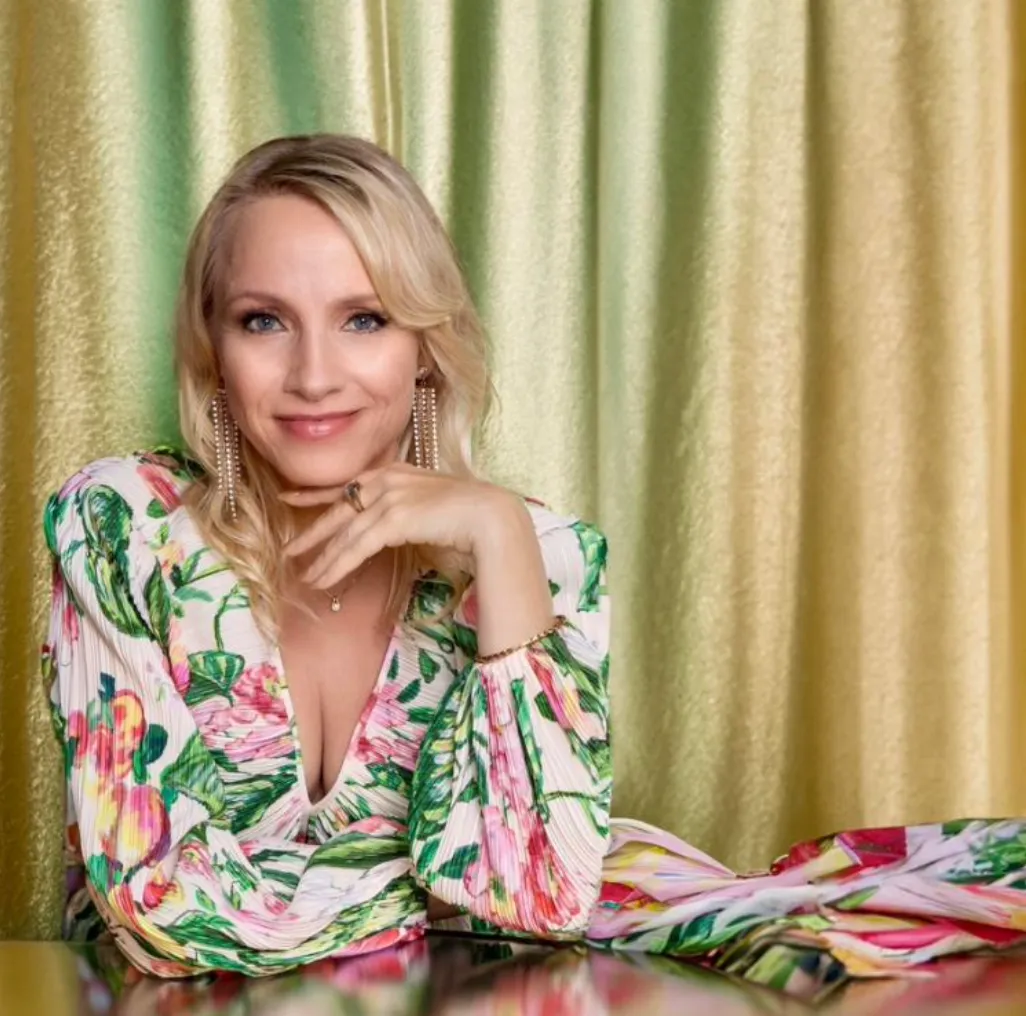
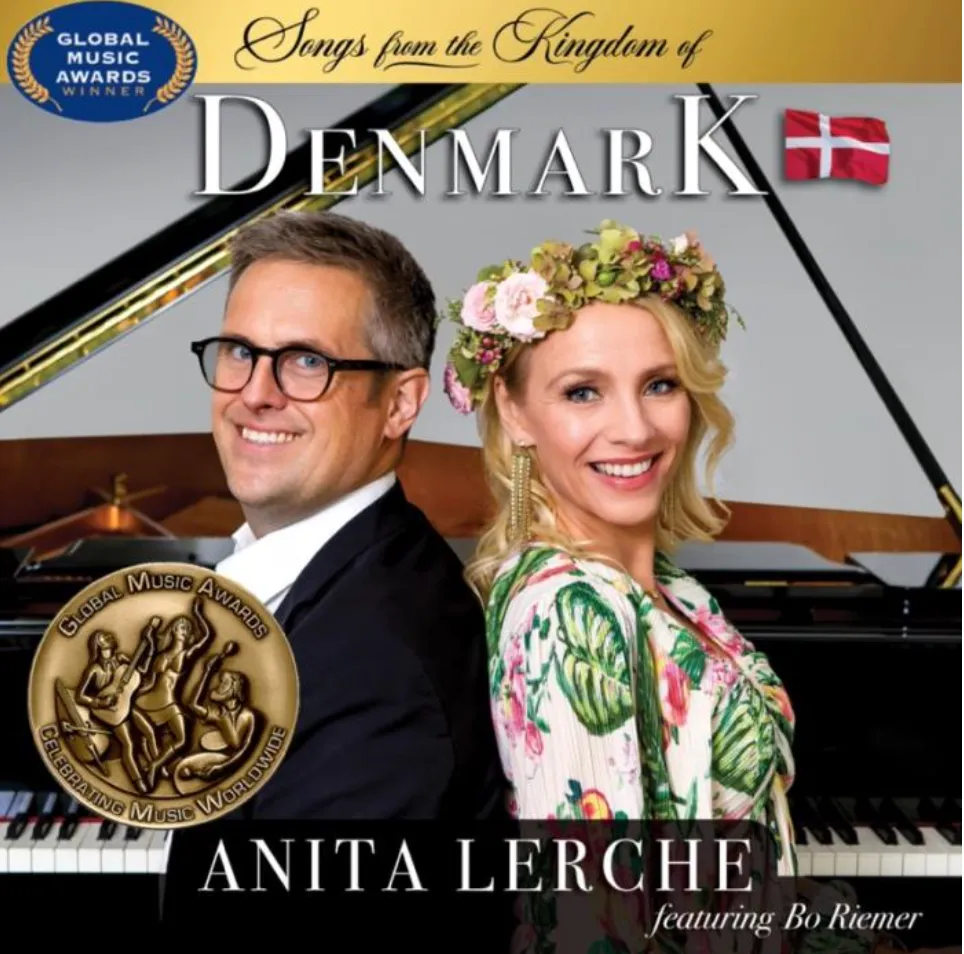
Anita Lerche
Anita Lerche stands as a beacon of musical excellence and cultural bridge-building. Originating from Denmark (now living in Indianapolis, Indiana), Anita is a Billboard Top-5 Charting internationally acclaimed award-winning singer-songwriter. Her illustrious journey began with her groundbreaking album Heer from Denmark in 2006, marking her as the first Western woman to delve into the Punjabi music scene. This venture not only showcased her exceptional talent but also her deep respect and love for Punjabi culture, earning her the title of Ambassador for Punjabi music, language, and culture.
New album out now, select here: Songs From The Kingdom of Denmark
Winner of Global Music Awards 2024 for 'Award of Excellence, Female Vocalist', Gold Medal
The album Songs from the Kingdom of Denmark stands as a heartfelt homage to my Danish roots and the wealth of Danish musical heritage. Sung in my native Danish tongue, it’s an expression of my deep affection for Denmark. This collection, featuring pieces from the 19th and 20th centuries, is a celebration of Denmark’s rich cultural tapestry, its stunning landscapes, and the legacy of some of the nation’s most cherished lyricists and composers. It is my sincere hope that these recordings will instill a sense of pride in Danes, both at home and overseas, in our shared Danish legacy, and provide insights into the rich tapestry of Danish melodies, its melodious language, and the beauty of Denmark to a global audience.
With a career that spans across continents and cultures, Anita’s discography includes the celebrated Punjabi album Sadke Punjab Ton, which captivated over 10 million music lovers on YouTube. Her collaborations include Aao Ji andMaahiya. Her entry into the Billboard New Age Music Chart with Bhajans as a Hot Shot Debut at #6, and her subsequent rise to #5 on the same chart, underscore her versatility and global appeal. Bhajans, a collection of eight Hindu devotional songs, along with her Sikh sacred music Simran and Mil Mere Pritma Jiyo, showcases her ability to blend spirituality with music, touching hearts worldwide.
Anita's solo album Love Is My Religion, written and composed by herself, is a testament to her belief in the power of love and unity across all divides. Produced with GRAMMY® Award-winning Jim “Kimo” West, this album echoes her message of peace and togetherness. Her role in representing Denmark in a global tribute to Mahatma Gandhi with Vaishnav Jan to, sung in Gujarati, amplifies her status as a cultural ambassador, merging music with historical reverence. Indian Prime Minister Narendra Modi launched the video as a part of the 150 years birthday celebration of Mahatma Gandhi.
In 2019, Anita debuted as a Radio Host on Rukus Avenue Radio, the world's largest South Asian Radio Station. She had a weekly show that featured Devotional music and later Contemporary music and Interviews with artists from the World music scene for two years.
Her accolades include three Global Music Awards for ‘Outstanding Achievement as Female Vocalist’ and nominations for ‘Best World Artist of the Year’ by The Josie Music Awards 2023 and ‘Best International Artist’ by the UK Bhangra Awards 2023, highlighting her international acclaim and influence. One of the highlights of her career was to perform in Gotham Hall on Broadway during the New York Fashion Week with her own original Punjabi songs. Anita’s linguistic prowess, with performances in 16 different languages across various music genres, underscores her versatility and commitment to cultural exchange.
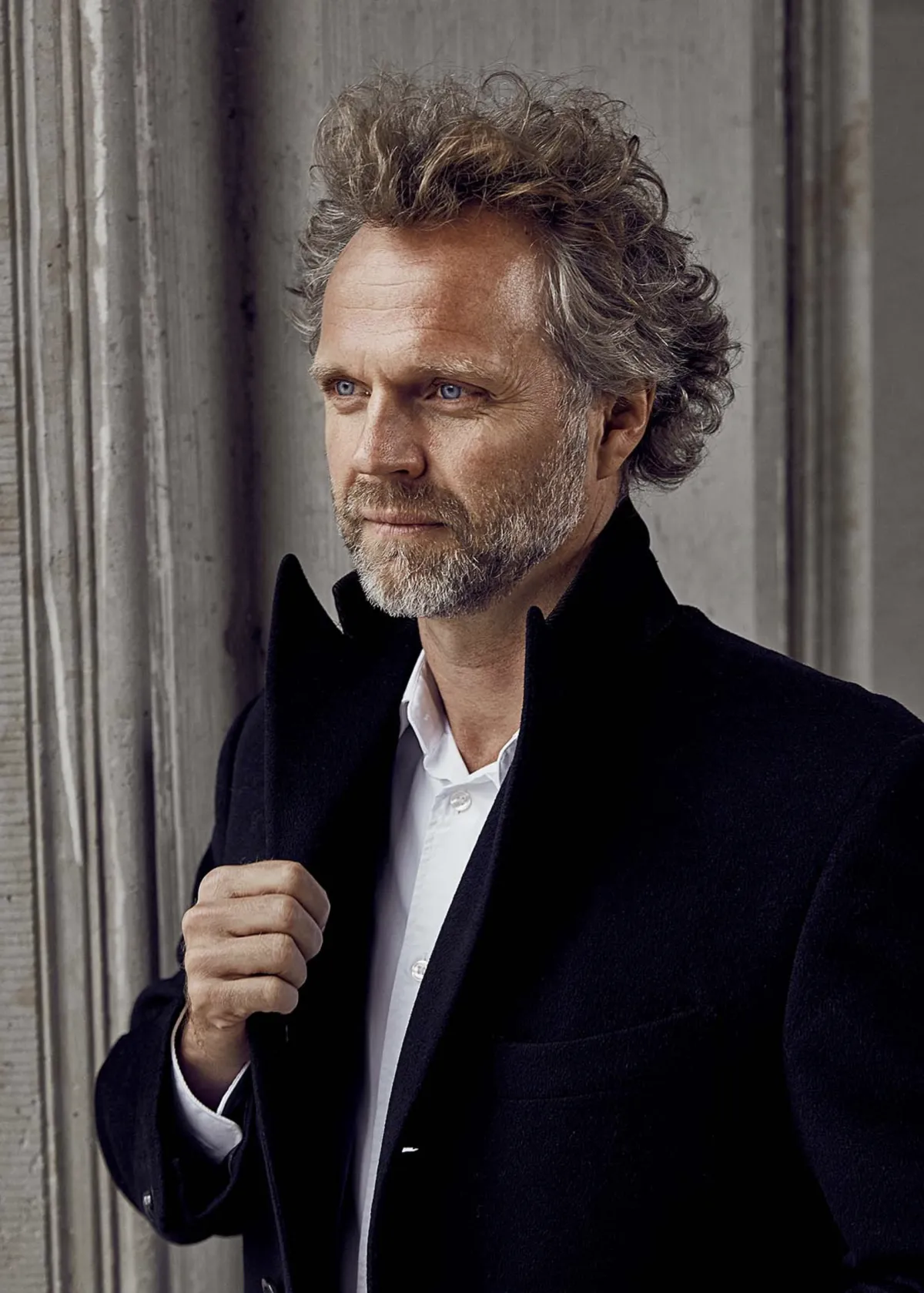
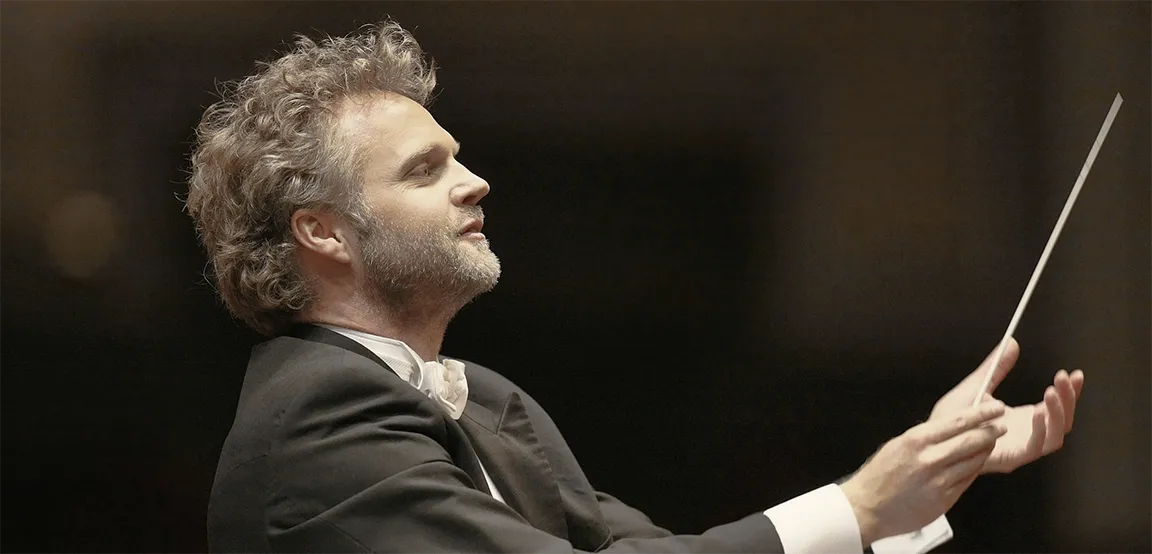
Thomas Søndergård
The Minnesota Orchestra announced (July 28, 2022) that Danish conductor Thomas Søndergård will succeed Osmo Vänskä to become the 11th music director to lead the Orchestra in its 120-year history. Described as a conductor whose “flawless feel for the music’s shape and drama galvanized musicians to give of their very best” (The Times, London), Søndergård will initially serve as music director designate in the 2022-23 season before beginning his new role in Minnesota in September 2023. Under the terms of a five-year contract beginning in the 2023-24 season, Søndergård will lead the Orchestra in at least 12 weeks of concerts and activities a year.
Born in Holstebro, Denmark, in 1969, Thomas Søndergård studied percussion under Gert Mortensen at the Royal Danish Academy of Music in Copenhagen from 1989 to 1992. During those student years, Søndergård served as percussionist in the London-based European Union Youth Orchestra, a training ensemble that regularly tours Europe. In 1992, he joined the Royal Danish Orchestra as timpanist and began studying conducting with Yves Abel, Alexander Polianichko and Graham Bond.
In 2009, Søndergård became the principal conductor and musical adviser of the Norwegian Radio Orchestra (through 2012), and he captured an additional conducting post when he was named principal conductor of the BBC National Orchestra of Wales (BBC NOW, serving 2012-2018). In 2018 he became music director of the Royal Scottish National Orchestra (RSNO), following six seasons as that orchestra’s principal guest conductor. Over his tenure, he has led the ensemble on tours across Europe, China and the U.S., and conducted numerous premieres of new works and commissions. This September he’ll lead Nicola Benedetti and the RSNO in the BBC Proms premiere of Wynton Marsalis’ Violin Concerto, alongside works by Britten, Bernstein and Thomas Adès. His will hold his RSNO post concurrently with his position in Minnesota.
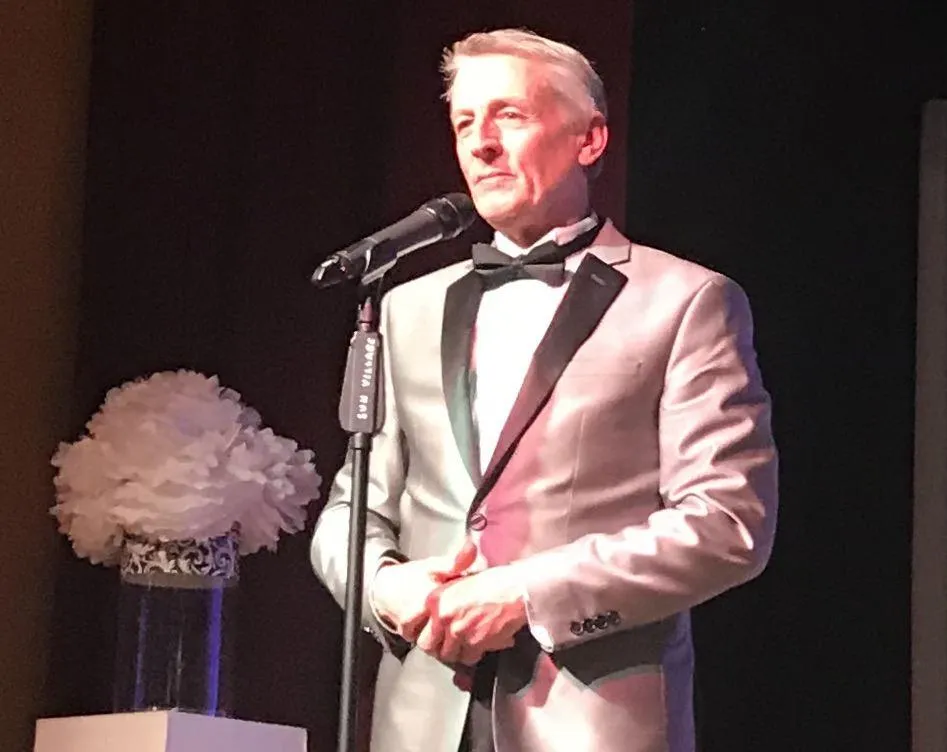
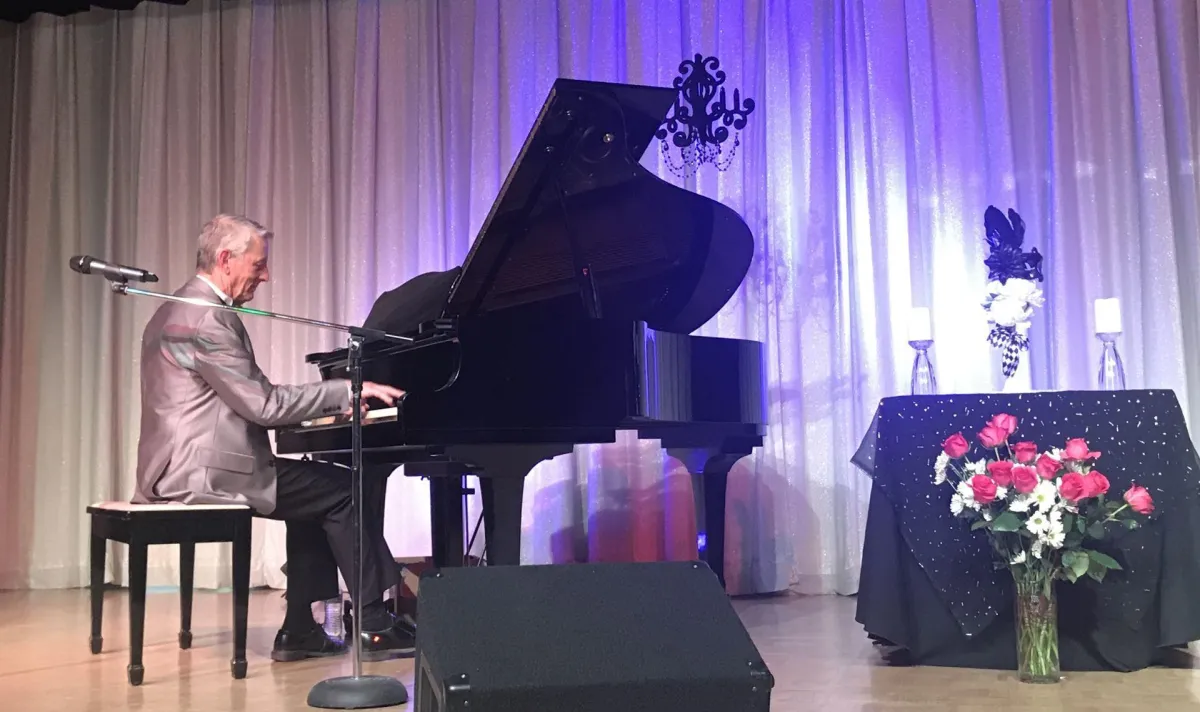
Glenn Henriksen
Danish American Glenn Henriksen is an accomplished, versatile pianist and organist. He began piano lessons at age seven, and continued through high school. At age thirteen he became the organist at his hometown church. Glenn attended Luther College in Decorah, Iowa and received further musical instruction. In the years following, he has played for a wide variety of events, including solo piano and organ concerts, church services, weddings, funerals, receptions and other social activities. Glenn’s repertoire includes classical, ragtime, blues and jazz, standards, pop and rock, country, Latin, gospel, and sacred. Glenn is also a seasoned accompanist, providing services to many vocalists and instrumentalists.
He is a member of the variety rock band Galaxy. Glenn’s lifetime experience in many musical genres has enabled him to develop a unique musical style, resulting in one-of-a-kind improvised arrangements. Glenn resides in Spirit Lake, Iowa and Armstrong, Iowa.
Each spring, Glenn spends several weeks in the Arizona "Valley of the Sun", giving concerts around the Phoenix area.
Glenn is very active in promoting the Victor Borge legacy. He has given many concerts and musical tributes to the great Danish American entertainer.
You can find Glenn's "at-home" concerts on his Facebook page...
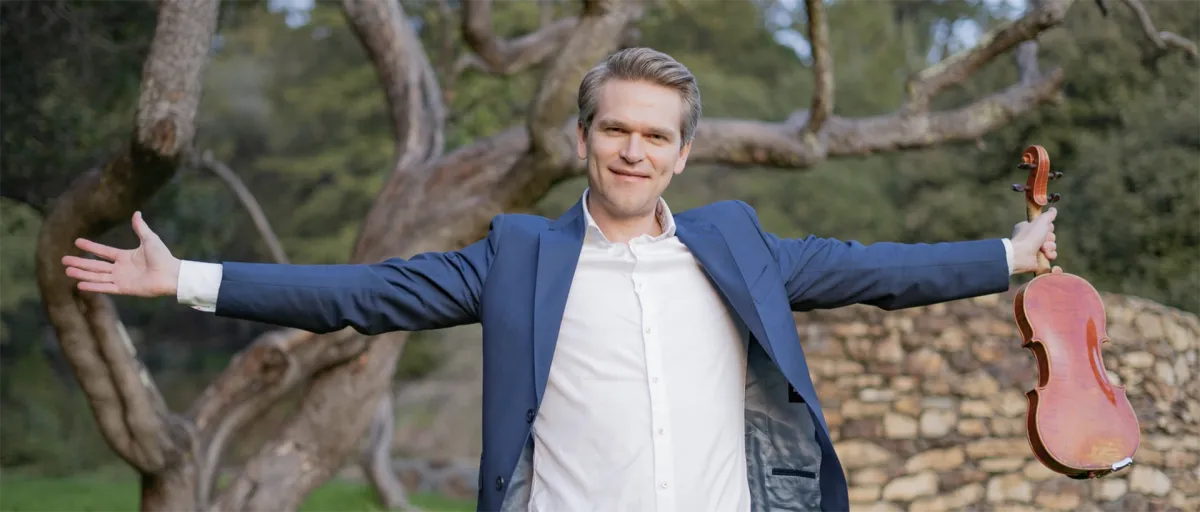
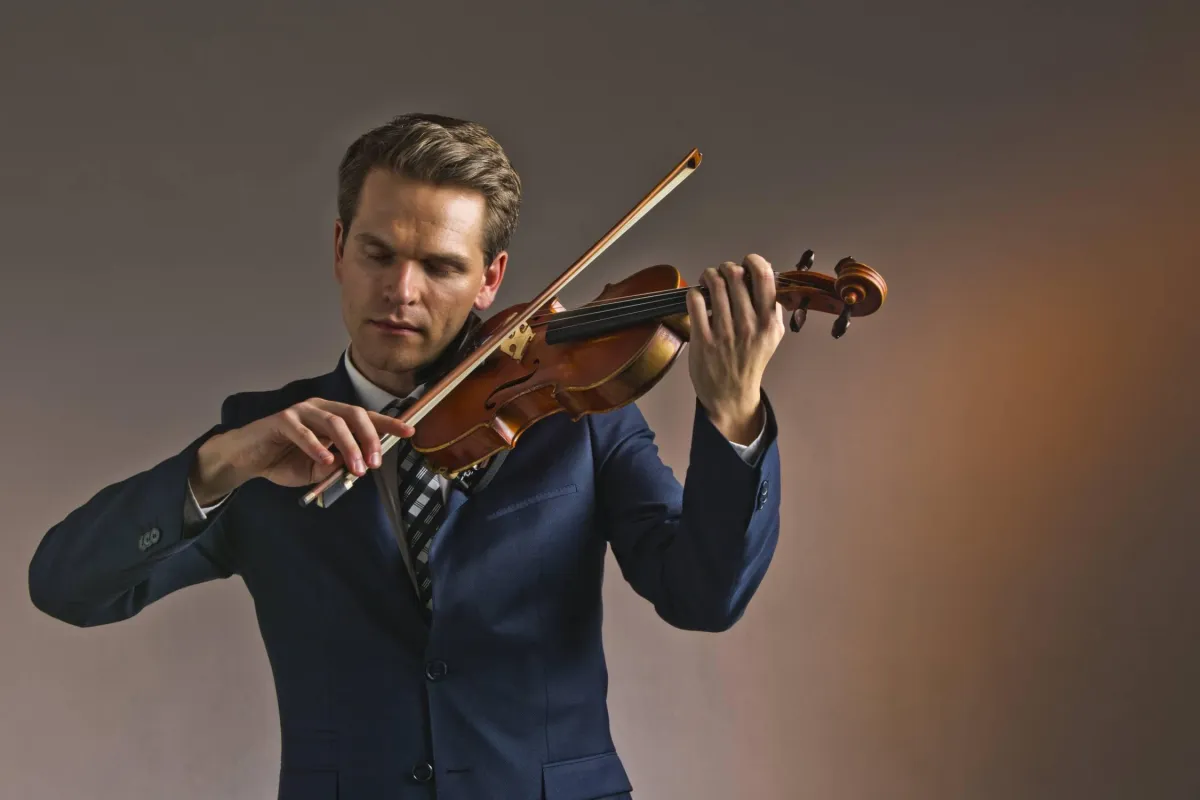
Mads Tolling
Internationally renowned Danish violinist, composer and two-time Grammy Award-winner Mads Tolling is a former member of the Turtle Island Quartet and The Stanley Clarke Band. He has toured internationally and has released three studio albums: “The Playmaker,” “Celebrating Jean-Luc Ponty-Live at Yoshi’s,” and “Mads Tolling & The Mads Men — Playing the 60s.” Mads has been featured on NPR’s Morning Edition, and his recordings have received rave reviews in Downbeat Magazine, Strings Magazine, the Washington Post, and the San Francisco Chronicle. Mads Tolling and The Mads Men bring a fun and exciting program that is as nostalgic as it is contemporary, with reimagined classic songs from 1960s television, film, and radio. The repertoire in the music of the mad men era ranges from “Mission Impossible” and “The Good, The Bad, and The Ugly” to “A Taste of Honey” and “Georgia on my Mind.”
In addition to his illustrious career as a performer, Mads Tolling is also an active composer and educator, creating work on his original albums and leading masterclasses and workshops throughout the U.S. and Canada as a certified Yamaha clinician.
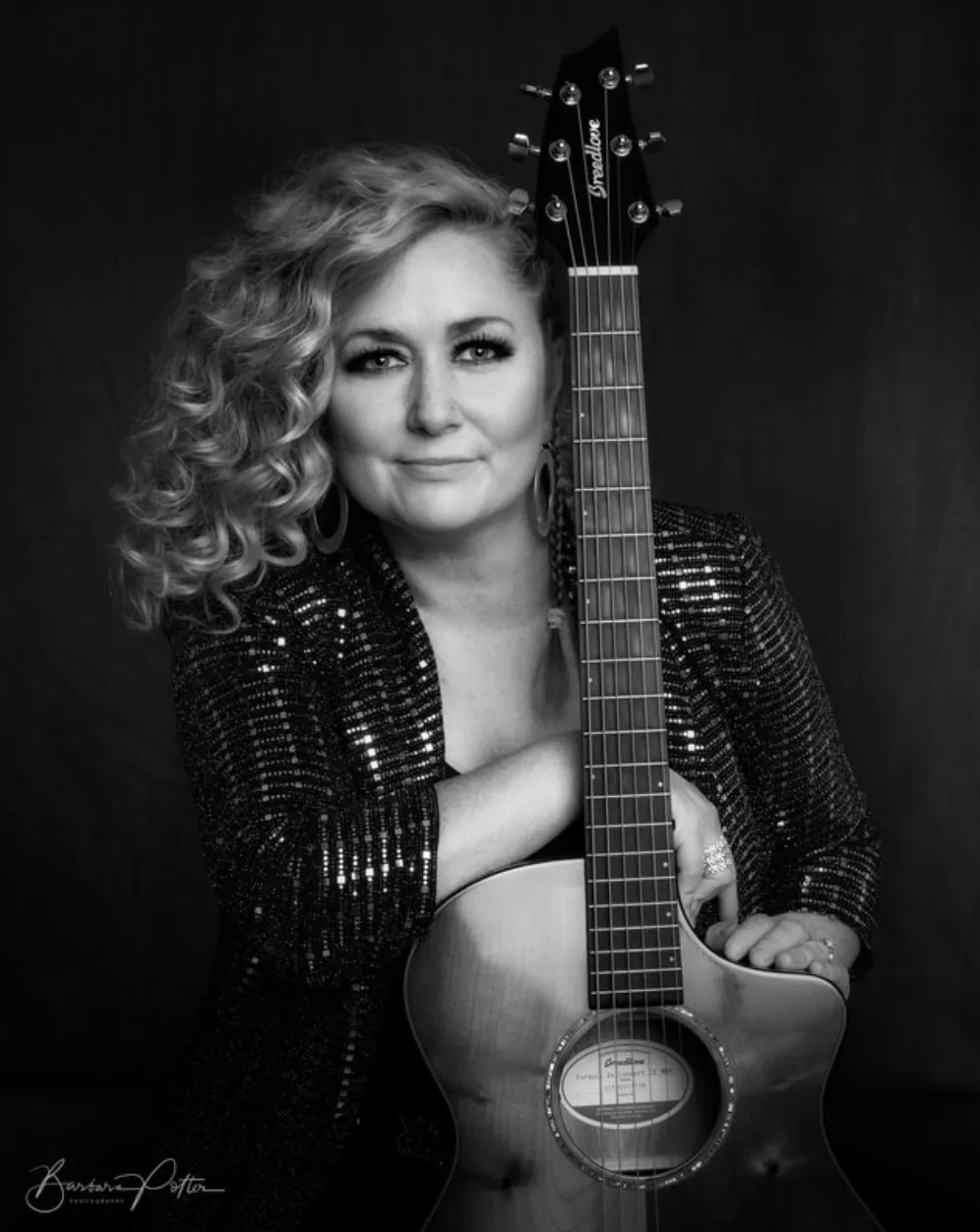
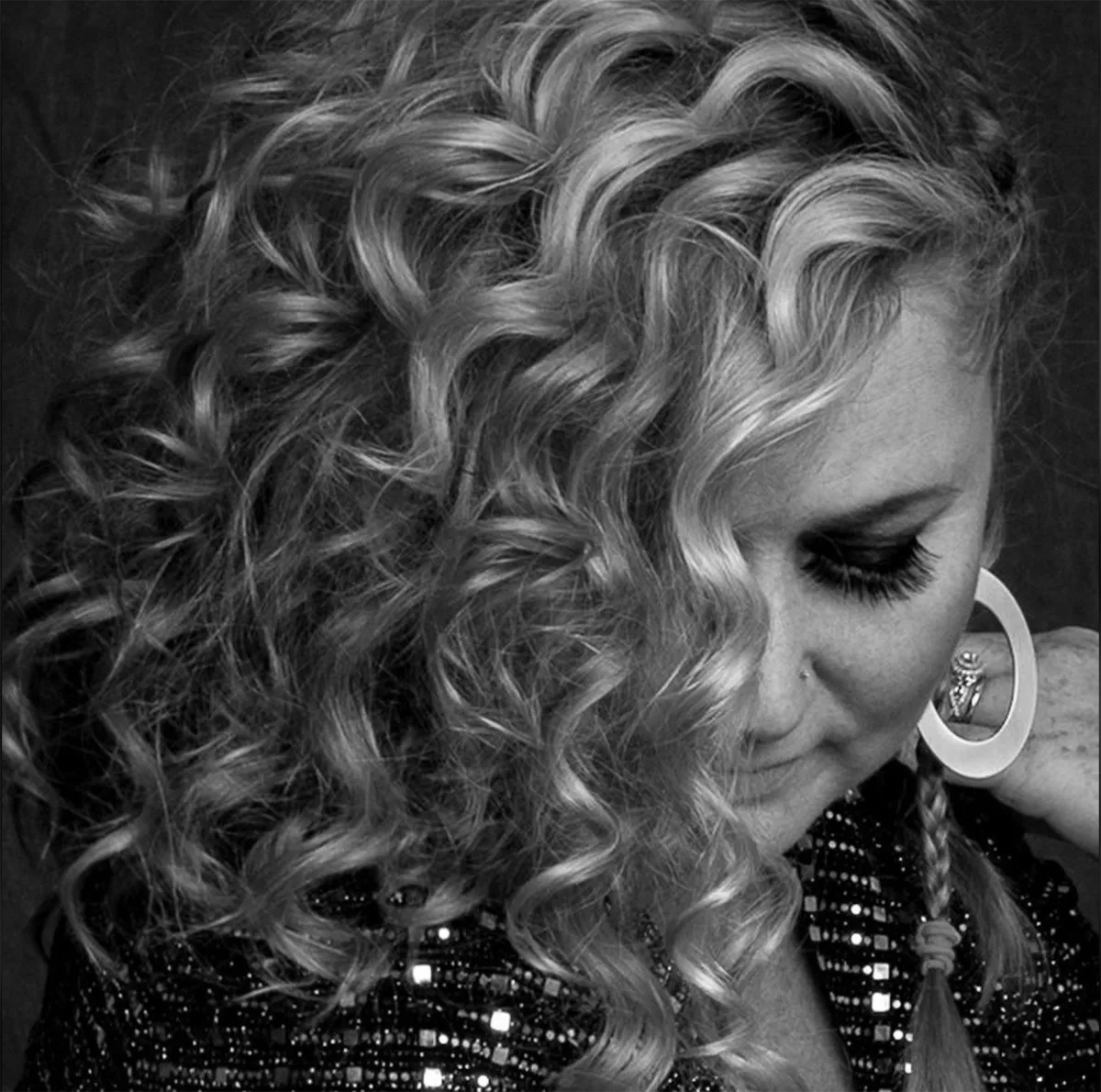
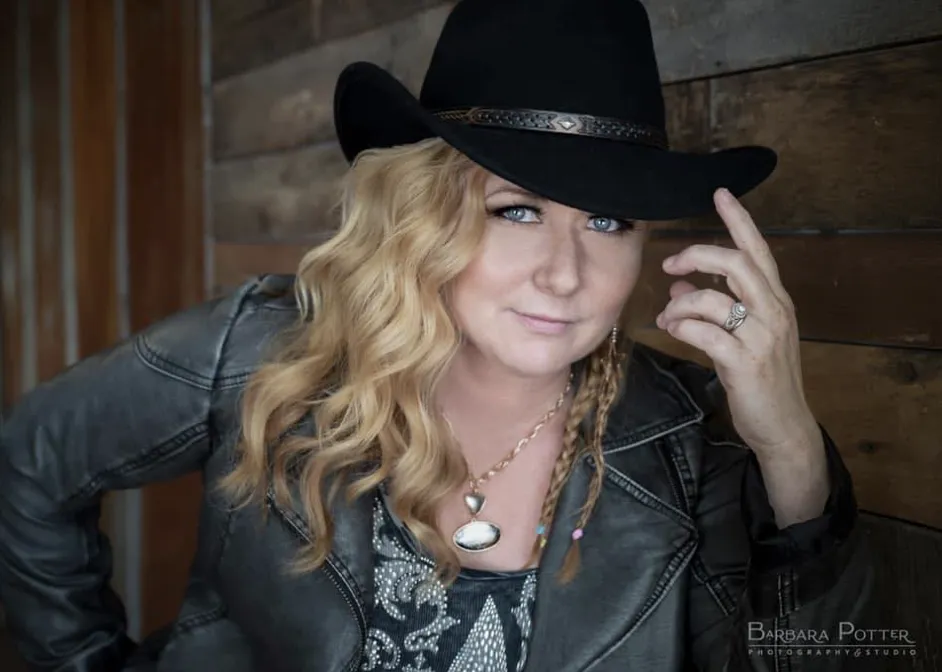
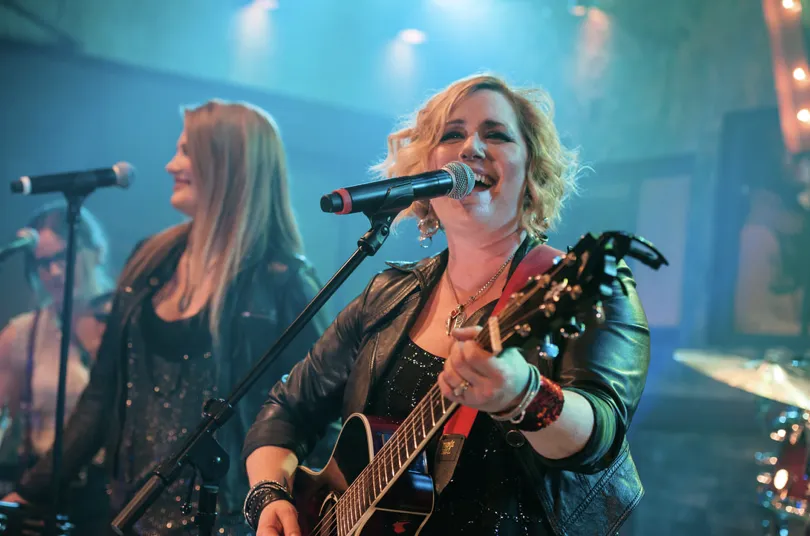
Jessica Lynne Witty
My story is not ordinary. I feel pretty ordinary, on the inside. But when I tell people where I come from and how I got here, it usually stirs up a gasp or two. My official story simply states that I grew up in Denmark and now live in the Pacific Northwest, but there is much more to it than that. So I decided to tell it.
My childhood was spent divided on three different continents. Strangest of all, I was born in South America. Valdivia, Chile to be exact. My parents were missionaries, but soon after my arrival, they decided to move back to the US. I was 6 months old. Needless to say, I don't remember anything from Chile at all. I ended up with dual citizenship - but not a Chilean one, as you might think, but a Danish/American citizenship.
My parents met in New York. My mom, from a small town of Sejlflod in Jylland, Denmark. My Dad from the Pacific Northwest. So when they decided, with 6 months old me in their arms to move back to the US, they settled on Tacoma, WA. Kind of fortuitous that my journey should lead me back here - only about 10 blocks away from my first American home. But that's for a later chapter.
My parents divorced when I was three and my mother decided to move us, three girls, to Denmark. First Skanderborg, then what I now consider my hometown, Haslev. This is where I went to school, where I had friends, where I learned about life, and love and longing. This is where I grew up. If you can call yourself a "grown-up" at 17; that's when I moved away from home.
I then became what I would call a "Copenhagen nomade" moving almost 25 times in the 13 or so years I lived there, interrupted only by a 2-year stint in Barcelona - also a story for another chapter.
I finally up-rooted, if I ever had roots, and moved to the Pacific Northwest in 2010 when I was 31.
And that's the short, cliff notes version story. But that's not really how I want to tell it. I want to tell my story by delving into how that story made me, me. What it was like, being a part of two worlds, and what sometimes felt like not being a part of anything at all. Feeling like an outsider for all the wrong reasons, trying so hard to belong, but not feeling like I belonged at all.
As a child, I would spend the entire year going to school and living my life in Haslev and every other summer I would visit my Dad in Seattle. The alternating summers, he would visit us. I spoke (and still do speak) both languages fluently... mostly without an accent in either language. My dad would call every week long-distance to keep in touch with us girls. And in the '80s that was not cheap! My mom, even though she is 100% Dane, would make traditional Danish cooking right alongside fried chicken and cornbread. I felt the duality every day.
Consequently, it somehow made me feel divided. Instead of belonging everywhere, I felt like I didn't belong anywhere.
I suppose, with a different outlook on life, this duality could have made me feel abundant, like a citizen of the world, who had many homes. But my upbringing in so many ways nourished lack and dependence. And it made me feel stretched too thin. I was too American to be Danish and too Danish to be American. So I was, effectively, neither.
Every time I came back to Denmark I would miss the US terribly. But it was never actually true the other way around. This only occurred to me when I finally moved here, that the homesickness I would feel for the US when gone, never set in for Denmark. Yes, I missed my family, but not the culture, not the place itself.
In reality, moving to the US clarified a lot of things for me. I have always been more American than Danish, I know that now. I've been loud, brazen, and always had big dreams and big gestures. Not in any way the proper little girl my mother tried to raise me to be. I had a terrible temper, that felt uncontrollable at times and a big voice that was repeatedly told to not shine too brightly, not to make the other kids feel bad.
This may seem harsh, but anyone from Denmark would notice this as "Janteloven" or "The Law of Jante" - a culturally-induced oppression that the Danes all know too well. Again, this is a phenomenon I will explain in depth in another chapter. Suffice it to say, it's a classic "crabs in a bucket" syndrome. When one tries to climb out the others will pull it back down.
So I suppose I was not entirely caught in the middle. I sometimes describe myself as "half-and-half", with a chuckle. But that doesn't really describe me. In reality, I am more like 75/25. In the last ten years, I have learned to embrace my Danish roots, while also fully encompassing how American I really am. Immigrant heritage and all.
In truth, it probably doesn't matter what continent we are on. Denmark for me was a time in my life when I tried to hide who I truly was, in order to try and fit in. It was a time of listening to others over my own intuition, my inner voice. It was a time of not being and owning who I truly am and what my life's purpose is. The US for me has been the journey of fully growing into my true self. A journey of growth and self-exploration. Of owning all sides of me, even the ones I don't necessarily like. And most importantly listening to my own truth rather than what others say. It's not about Denmark and it's not about the US. It's about what each country represents to me and who I became during each timeframe I spent there.
I can now look at being "half-and-half" and feel grateful that I was blessed with so much diversity. And I can own my big voice and my larger than life attitude and put myself on a stage and feel right at home. But I can also remember where I came from, and what is truly important in life. Love of family, love of friends and most importantly, self-love.
- Visit Our Online Community (coming soon)
© 2026 National Foundation for Danish America. All rights reserved.
